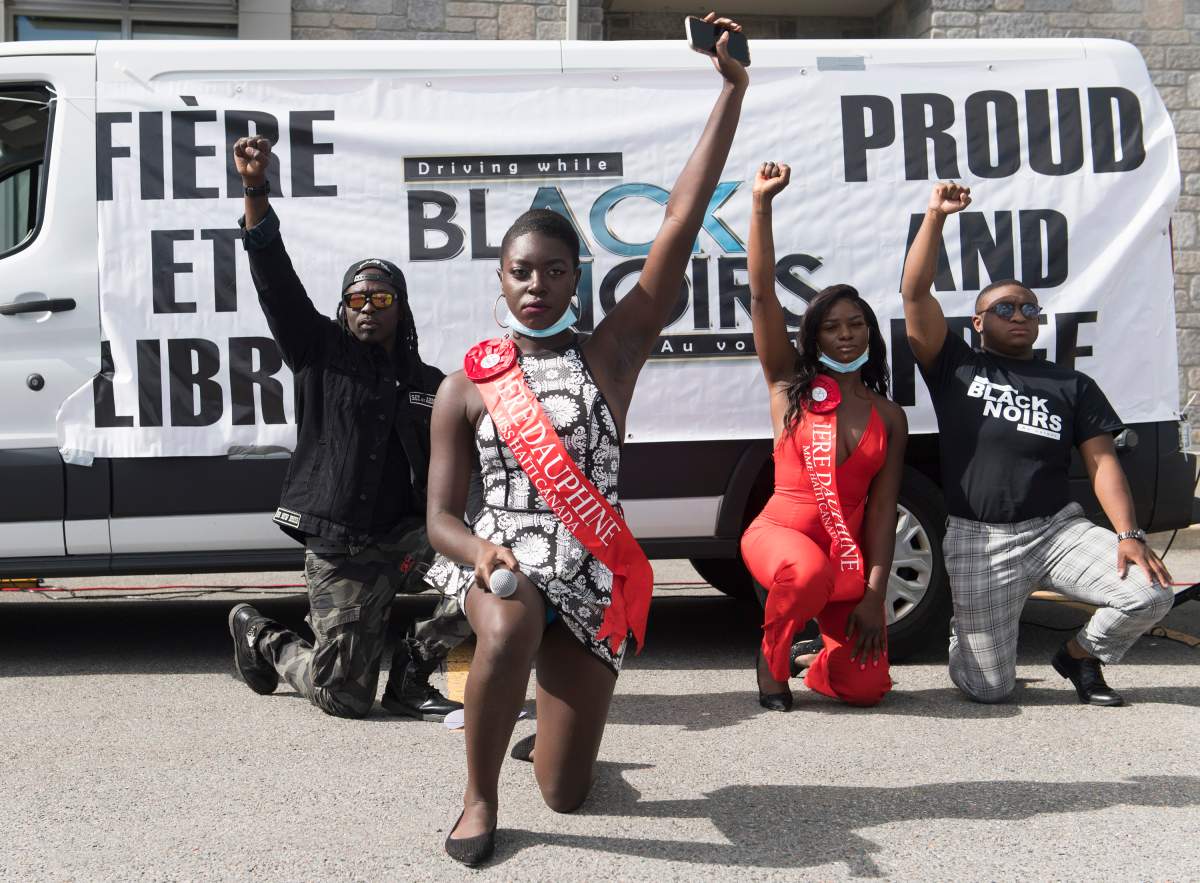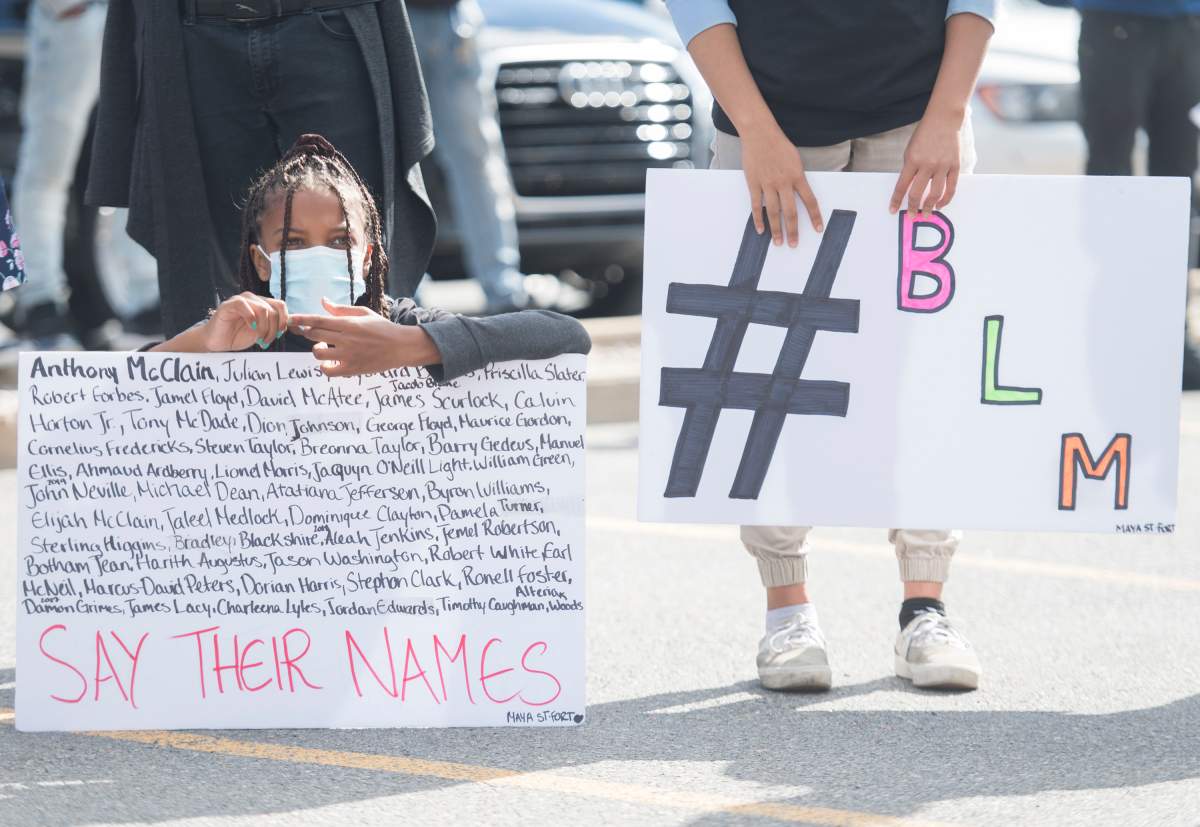Djennie Dorvilier still remembers the excitement of getting a brand new car after graduating from college 20 years ago, using the money she saved from working night shifts at McDonald’s.

She also remembers being stopped nine times for random police checks within the first month and a half of owning her new car, a 2000 Mazda Protege.
“I was even told it’s because I didn’t look like someone who could afford such a car,” Dorvilier said at a protest in Montreal on Sunday.
Dorvilier was among a convoy of nearly 60 Black motorists who drove to Quebec Premier François Legault’s office in the suburb of L’Assomption, about an hour outside the city, to protest racial profiling.
The demonstration, titled “Driving While Black,” comes amid a widespread movement to bring attention to police treatment of BIPOC (Black, Indigenous and people of colour) communities.
READ MORE: Protesters in Montreal topple John A. Macdonald statue, demand police defunding
“Now people are listening, but we’ve been going through this for many years. It’s important to raise awareness about, when you’re racialized, how you’re treated by the police when stopped while driving your car,” Dorvilier said.
The demonstrators eventually made it to Legault’s office, where they read out their demands from a letter detailing 10 ways to stop Black people from being targeted by police while driving.
The proposals include a call to revise Quebec’s Guide to Police Practices to eliminate any act that allows officers to discriminate or racially profile anyone they come across.
The guide was in the news last week, when the province’s Ministry of Public Security unveiled guidelines to make sure that police stops aren’t racially motivated. But the move was met with criticism by some advocacy groups who said they weren’t consulted.
The province’s human rights commission ruled at the end of 2019 that the city of Montreal should stop police checks as they “disproportionately affect certain groups.”

Get daily National news
Fo Niemi, executive director of the Centre for Research Against Race Relations, said Sunday he’s been receiving complaints from people across the province — including as far west as Gatineau — about police checks. He said there’s a growing number of them coming from suburban areas, where more and more Black people are moving.
“We have some people being stopped practically two, three times a months just because they drive a flashy car,” Niemi said. “To the point where one of our clients has to basically change his car.”
Vladimir Dorceus said he has lost track of the amount of times he has been pulled over for a random check by police in his Black BMW. Dorceus brought his nine-year old son to Sunday’s event to show him how Black people can come together to protest the issue.
“Even if he’s young, I think he has to be informed of the situation. Because he’s a young Black person who lives in Montreal and it could happen to him in the future,” Dorceus said.
Josue Corvil, who was elected as a city councillor for the Montreal borough of Saint-Michel in late 2018, said he remembers being stopped by police who were unaware of his work for the city last year.
He said he doesn’t believe all police officers are racist, but he feels some of their ways must be changed in order for better relations to be had between Black people and police.
“It’s very frustrating to be stopped,” Corvil said.
Legault’s office did not immediately respond to a request for comment on Sunday.










Comments